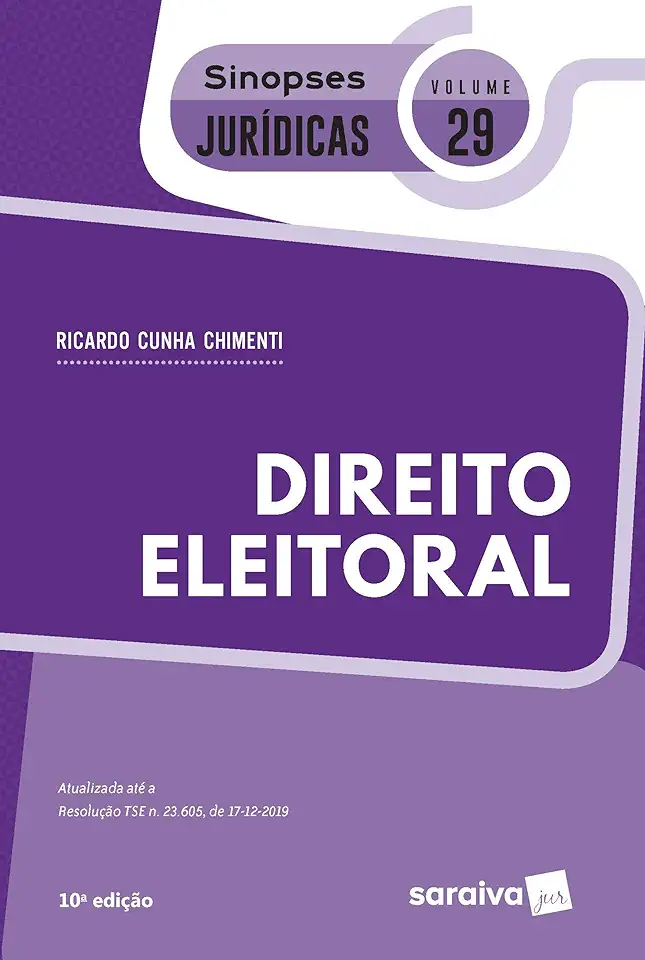
Electoral Law - Ricardo Cunha Chimenti
Electoral Law: A Comprehensive Guide to the Legal Framework of Elections
By Ricardo Cunha Chimenti
In a world where democracy thrives on the foundation of fair and transparent elections, understanding electoral law is of paramount importance. Ricardo Cunha Chimenti's comprehensive guide, "Electoral Law," delves into the intricate legal framework that governs the conduct of elections, providing readers with a thorough understanding of the rules and regulations that shape the democratic process.
A Foundation for Democratic Governance
Elections serve as the cornerstone of democratic governance, enabling citizens to exercise their fundamental right to participate in decision-making. Electoral law establishes the legal framework that ensures the integrity, fairness, and transparency of these elections, safeguarding the democratic principles that underpin society.
Key Features of Electoral Law
Chimenti's book offers a comprehensive exploration of the key features of electoral law, including:
Voter registration and eligibility: Understanding the criteria and procedures for voter registration, as well as the factors that determine voter eligibility, is crucial for ensuring inclusivity and preventing disenfranchisement.
Electoral systems: The book examines various electoral systems, such as first-past-the-post, proportional representation, and mixed systems, highlighting their advantages and disadvantages.
Political parties and campaign finance: Chimenti analyzes the legal framework governing political parties, campaign finance, and election spending, shedding light on the regulations that ensure transparency and prevent undue influence.
Election administration: The book delves into the structure and responsibilities of election management bodies, outlining their role in organizing, conducting, and overseeing elections.
Election disputes and remedies: Chimenti explores the legal mechanisms for addressing election disputes and irregularities, ensuring that the rights of voters and candidates are protected.
A Comparative Perspective
"Electoral Law" adopts a comparative approach, drawing on examples from different jurisdictions around the world to illustrate the diverse legal frameworks that govern elections. This comparative analysis provides readers with a broader understanding of the various approaches to electoral law and the challenges faced by different countries in ensuring democratic elections.
A Valuable Resource for Practitioners and Scholars
Ricardo Cunha Chimenti's "Electoral Law" is an invaluable resource for legal practitioners, scholars, policymakers, and anyone interested in the legal framework of elections. Its comprehensive coverage, clear explanations, and comparative approach make it an essential guide for understanding the complex legal landscape that shapes the democratic process.
Order Your Copy Today!
Don't miss out on this opportunity to gain a comprehensive understanding of electoral law and its vital role in democratic governance. Order your copy of "Electoral Law" today and delve into the legal framework that ensures the integrity and fairness of elections, the cornerstone of democratic societies.
Enjoyed the summary? Discover all the details and take your reading to the next level — [click here to view the book on Amazon!]